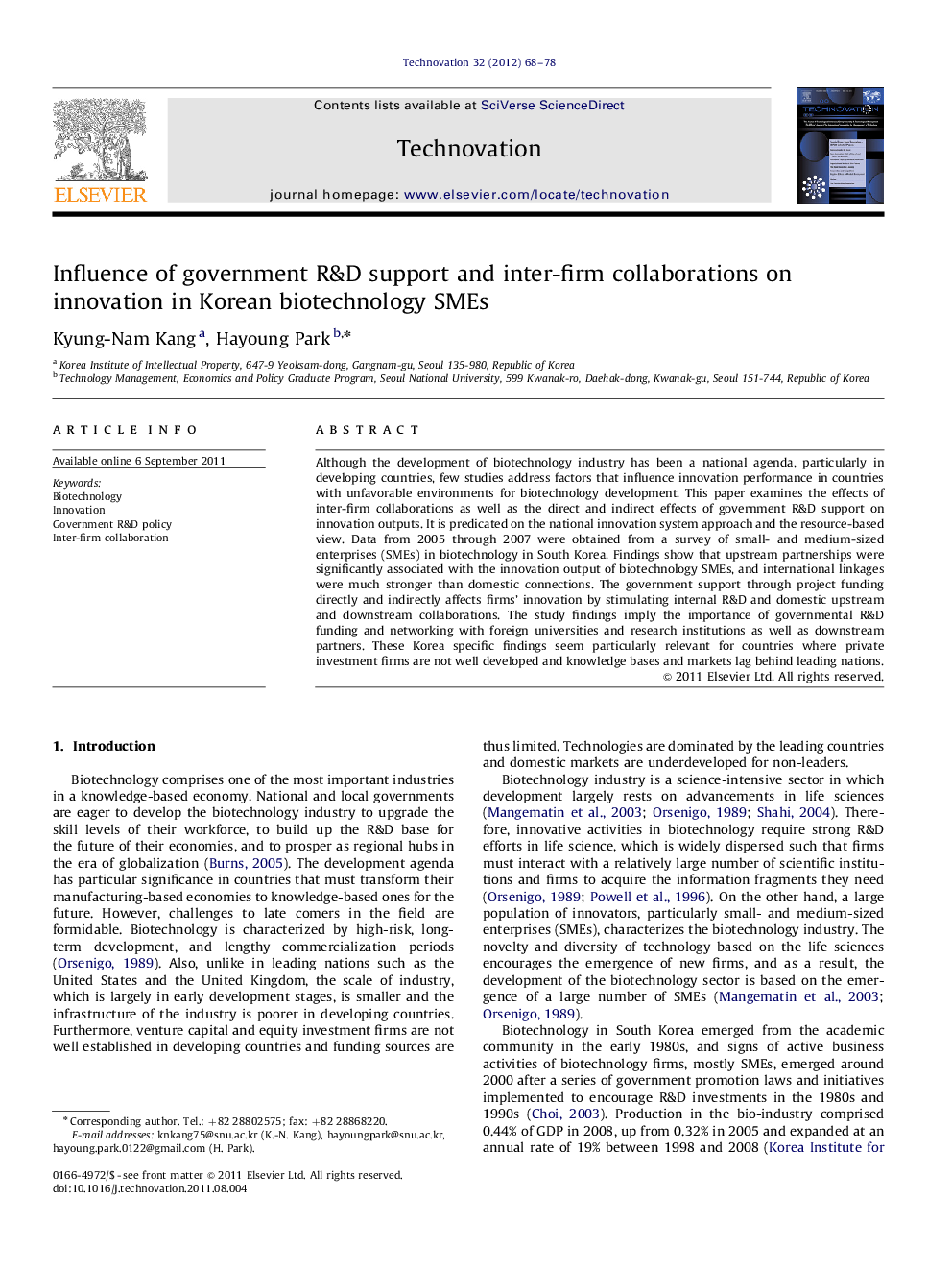| Article ID | Journal | Published Year | Pages | File Type |
|---|---|---|---|---|
| 1022191 | Technovation | 2012 | 11 Pages |
Although the development of biotechnology industry has been a national agenda, particularly in developing countries, few studies address factors that influence innovation performance in countries with unfavorable environments for biotechnology development. This paper examines the effects of inter-firm collaborations as well as the direct and indirect effects of government R&D support on innovation outputs. It is predicated on the national innovation system approach and the resource-based view. Data from 2005 through 2007 were obtained from a survey of small- and medium-sized enterprises (SMEs) in biotechnology in South Korea. Findings show that upstream partnerships were significantly associated with the innovation output of biotechnology SMEs, and international linkages were much stronger than domestic connections. The government support through project funding directly and indirectly affects firms' innovation by stimulating internal R&D and domestic upstream and downstream collaborations. The study findings imply the importance of governmental R&D funding and networking with foreign universities and research institutions as well as downstream partners. These Korea specific findings seem particularly relevant for countries where private investment firms are not well developed and knowledge bases and markets lag behind leading nations.
► Government support had direct and indirect influences on biotechnology SMEs' innovation output. ► The internal R&D resources significantly affected the innovation output directly and indirectly. ► SMEs with domestic–international/upstream–downstream alliances performed better in innovation. ► Influence of international partnerships on innovation was greater compare to domestic alliances.
